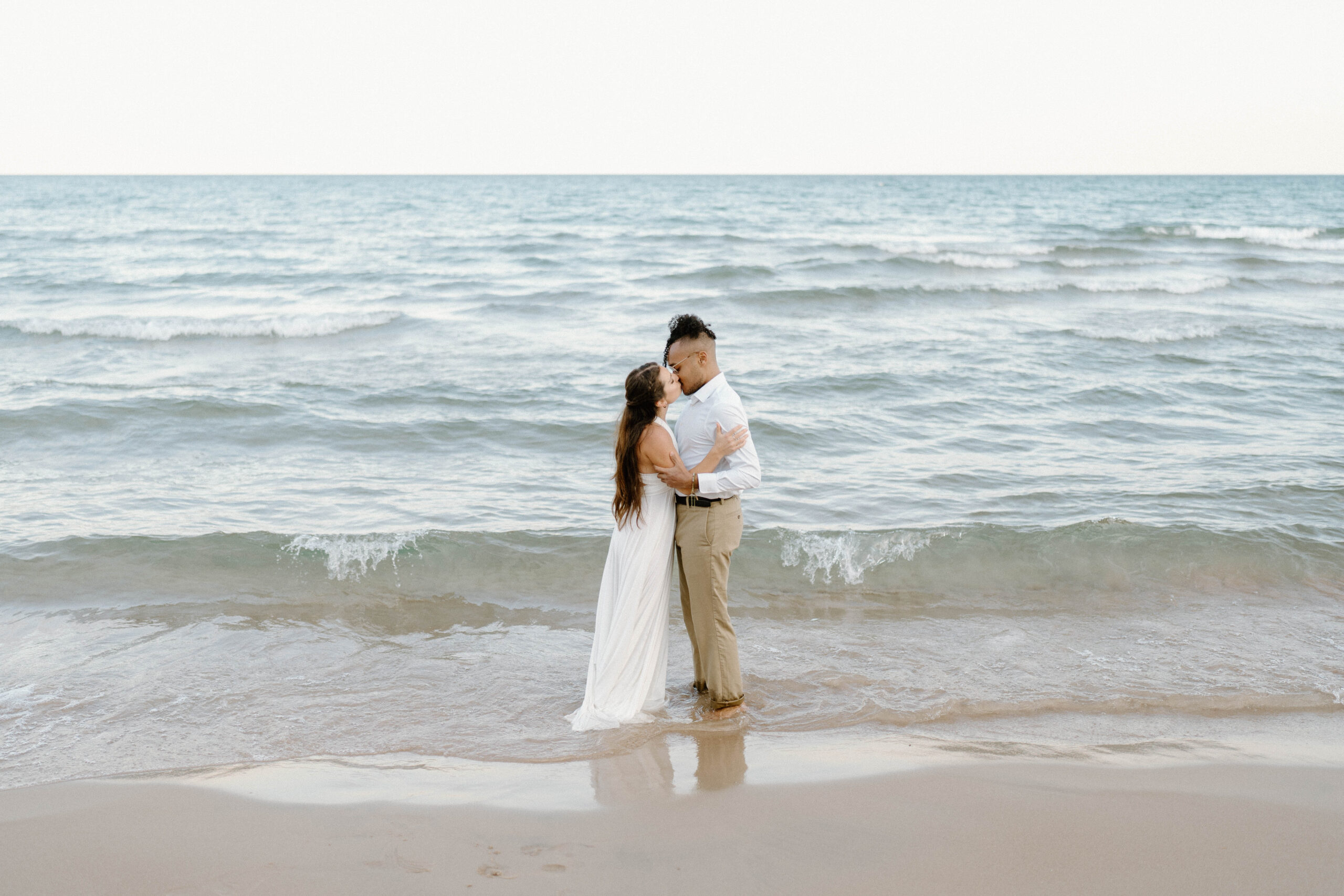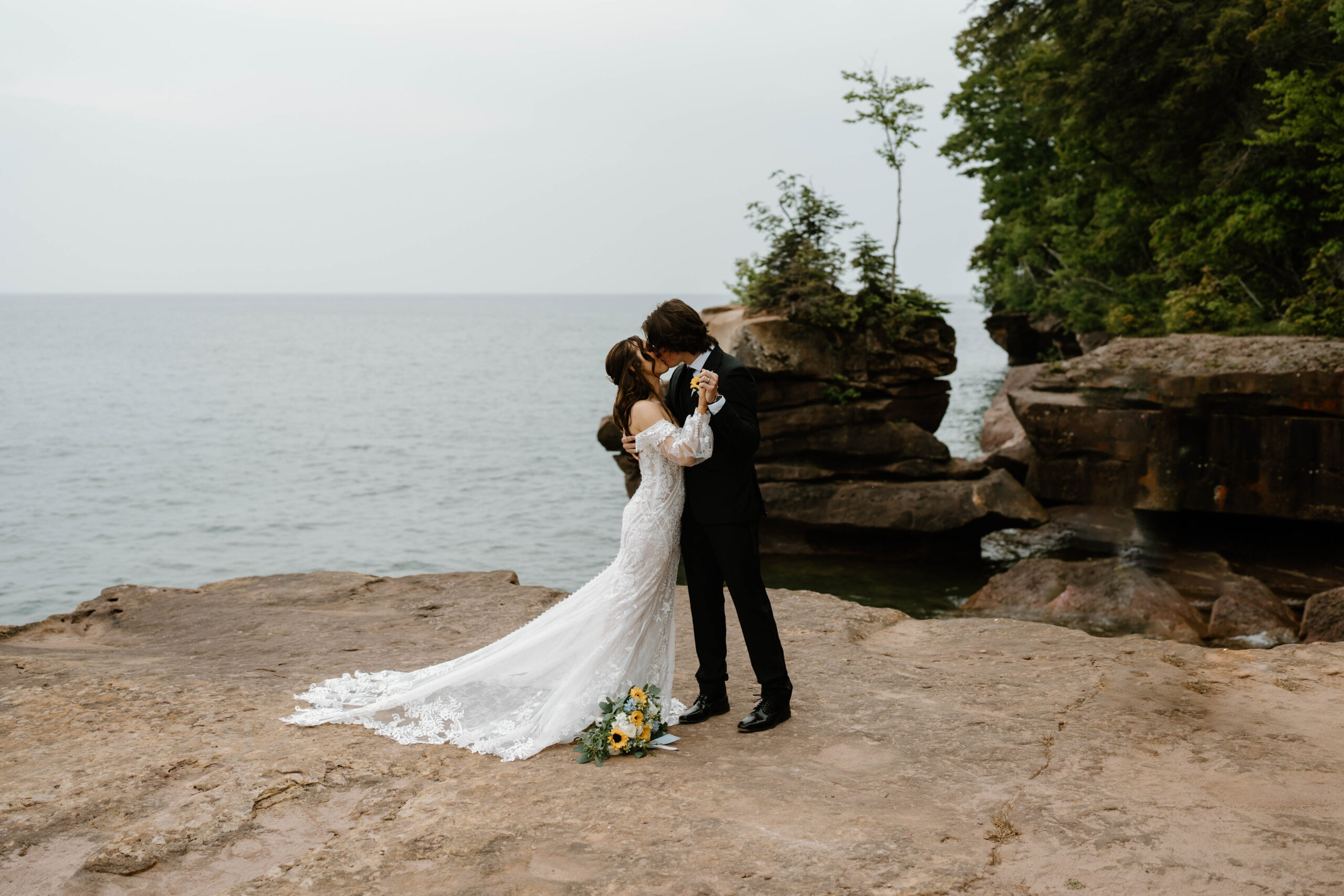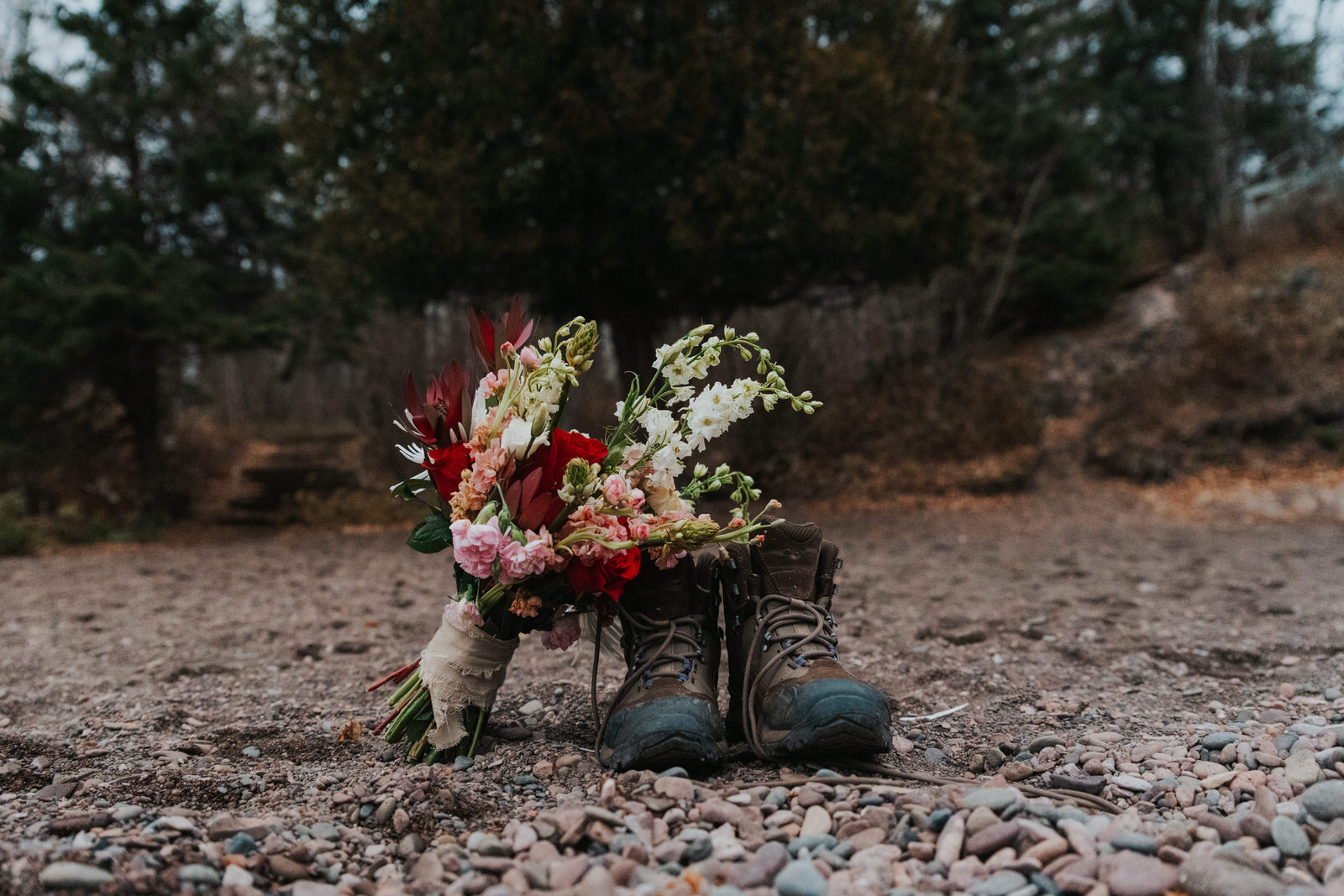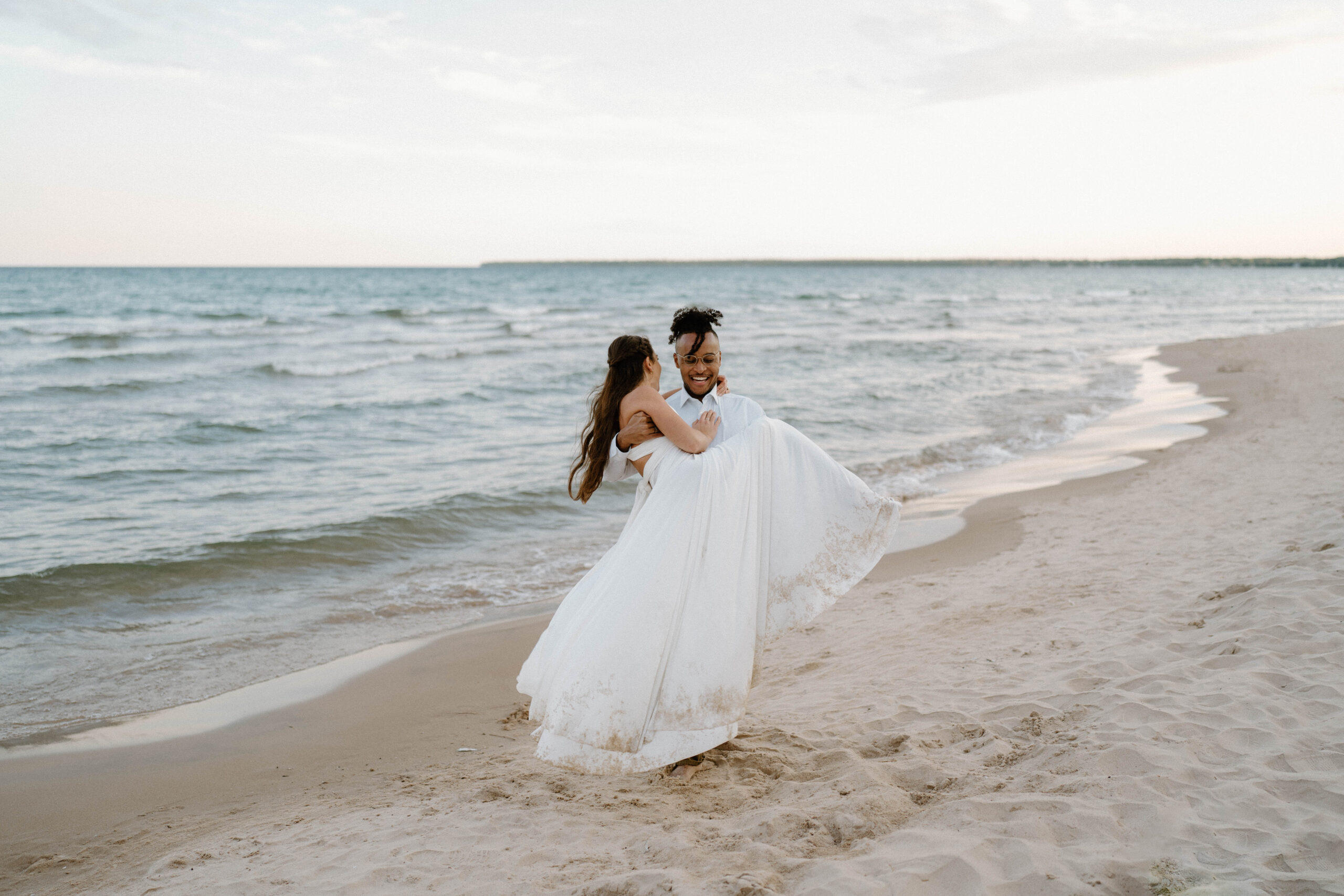Did you know that in Wisconsin, you can marry yourself? And I don’t mean in the Carrie-Bradshaw-marrying-herself-to-get-gifts kind of way – I’m talking about marrying your partner, but you can get married without a single soul around – no judge or officiant required! Self solemnization means you’re the only ones to sign your marriage license, and just like that, you’re married!
What is Self Solemnization?
In most states, an officiant is required to sign your marriage license to legally marry you. Most states also require the signatures of two witnesses (though some only require one).
While many couples do invite a few family members or close friends, others feel that they want their wedding day to be intimate, and an experience that’s shared between the two of them. If you’re in that boat and were hoping for a private ceremony, it can be a real bummer to learn that you need to find an officiant and some witnesses!
But, no need to be bummed – self solemnization is here to save the day!
Self solemnizing means that the only people who have to sign your marriage license are the people in your marriage – so just you and your boo! Few states offer this option, but Wisconsin is one of them – so if you’re hoping for an elopement day that’s just the two of you, consider eloping in this (in my humble opinion), super underrated state.

Why Self Solemnize?
Self solemnization comes with a lot of advantages, and here are a few of them!
No Need to Hire an Officiant
Most people imagine weddings to happen in front of an ordained minister – and while you’re totally free to keep this tradition in your untraditional wedding day, in Wisconsin, it’s definitely not required!
There are a ton of judges, notaries, priests, and ordained officiants around – but if your elopement day involves a long hike or an epic adventure, it might be a little difficult to find someone who is willing and able to join you! If you marry yourselves, you won’t have to worry about your day being “too much” adventure.
Anyone Can Sign
Wait, isn’t the point of self solemnization that no one signs?
Yes, but even though Wisconsin doesn’t require witnesses, the marriage licenses still have room for two of them! So, if you’re inviting guests, it can be a nice symbolic gesture to have one or two of them sign. Kids especially get really excited to sign adult paperwork, and while most states require witnesses to be over 18, this doesn’t matter in Wisconsin!
Another adorable idea is to have your dog stamp their paw print on the witness line! Just bring an ink pad, and have your four-legged best friend be your witness.
Total Privacy
There are tons of reasons why couples choose to elope, but one of the reasons I hear most often is that it didn’t feel natural to have an audience watching as they read their vows. It’s very vulnerable and personal, and a lot of couples would prefer to be alone together (plus the photographer, but don’t worry, I’m a great third wheel). Reading your vows is also completely authentic and unique, and you won’t have to repeat the traditional “I dos.”

How to Get a Marriage License in Wisconsin
You will still need some paperwork to tie the knot in Wisconsin! To obtain a marriage license, both you and your partner will need to visit the county clerk’s office. If you live here, you need to apply for your license in the same county that one (or both) of you lives in. If you’re traveling from out of state, you must apply in the county in which your ceremony takes place. Make sure to arrive in Wisconsin early if you’re not a local! The waiting period in Wisconsin is six days – which means you need to pick up your license at least six (but no more than 30) days before the ceremony. However, some county clerks waive the waiting period for a fee of around $25.
When you apply you’ll need to bring three forms of ID – your birth certificate, photo ID such as a driver’s license or passport, and proof of residence.
License fees can vary depending on which county clerk you visit, but they’re usually between $50 and $120 – and a few county clerks only accept cash, so make sure to do some research before you go!

Ready to Self Solemnize?
If you’ve decided that self solemnization is the right choice for your elopement, let’s do it! Along with Wisconsin, an officiant isn’t required in Colorado, Illinois, Kansas, Maine, Nevada, and Pennsylvania.
But, even if you don’t elope in any of those states, you can still forgo the officiant for your ceremony! A lot of couples do the paperwork prior to the actual elopement day. You can sign at the courthouse or in front of a notary, and then forget about legalities and logistics and enjoy your elopement! Paperwork isn’t what really signifies the beginning of your marriage – your vows and ceremony do.
If you’re ready to elope, and need an expert on all things Wisconsin marriage law, contact me!
The Best Places to Elope in Wisconsin
A SMALL, INTIMATE WISCONSIN WEDDING ADVENTURE
